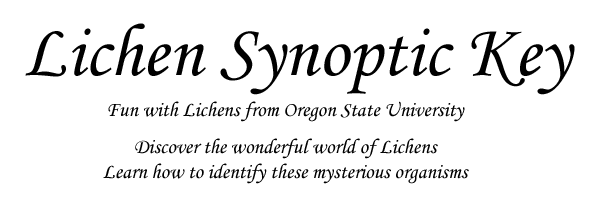- Soredia:
- Lobules: no
- Isidia: no
- Podetia: no
- Reproductive Body: apothecium brown
- Body Type: fruticose
- Unstratified: no
- Life Form: lobes loosely attached
- Hollow lobes: no
- Central cord: no
- Lobe shape: strap-shaped channeled
- Rhizines: single or forked
- Cilia margin: no
- Simple perforate: no
- Cyphellae: no
- Pseudocyphellae: no
- Lobe Color, inside: white
- Lobe Color, underneath: brown-no tomentum
- Surface Color: greenish-brown
| - Surface texture: scabard
- Wrinkles:
- Cephalodia: none
- Papillae: no
- Fibrilles on Branches: no
- Spore type: non-septate
- Spore size (um):
- Lobe Width: less than 5 mm
- Lobe Range Width:
- Medullar C Reaction: negative
- Medullar K Reaction: negative
- Medullar KC Reaction:
- Medullar P Reaction: negative
- Areolate: not areolate
- Algae: green
- Iodine Test:
- Cortex C: negative
- Cortex K: negative
- Cortex P: negative
|

